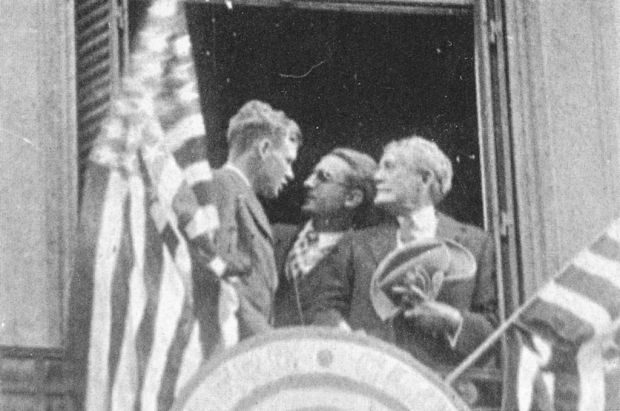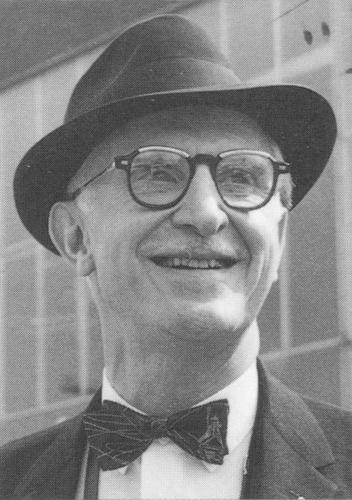A journalist who interviewed some of the biggest names of his day eventually got his own name on east-side streets and a park.
Leland D. Case was born to Herbert and Mary (Grannis) Case in 1900 in Wesley, Iowa. He grew up in South Dakota, where he was a Boy Scout for many years.
In 1918, he enlisted in the Student Army Training Corp. at Northwestern University in Evanston, Ill., where he graduated with a master's degree in journalism in 1926.
While on vacation in France, he landed work with The Paris Herald (now the International Herald Tribune). Among the stories he covered for the paper was Charles Lindbergh's solo trans-Atlantic flight.
In 1927, he returned to Northwestern to teach in the journalism department. While there, he co-wrote a textbook, "Editing the Day's News," which was used by students at the University of Arizona for more than 40 years.
In 1930, Case was named editor of The Rotarian, the magazine of Rotary International. In this role, which he held for several years, he interviewed Orville Wright and Albert Einstein.
His lifelong love of folklore and history of the Old West led him to co-found Westerners International to promote study and scholarship of the American West. One author described the organization as "a sort of Western-style Rotary Club," with cowboy terminology like "sheriff" instead of president, "posse" in place of executive committee and "corral" taking the name of club or local chapter. The mascot was "Old Joe the Buffalo." Tucson has three "corrals."
Case and his wife, Josephine, moved to Tucson in 1950 after he contracted tuberculosis. He intended to retire here and possibly do freelance writing. They bought a home on about 20 acres on East Broadway, just east of South Harrison Road.
He left Tucson for a time but returned in the late 1960s.
Case received at least six honorary college degrees and also founded the Leland D. Case Library of Western Historical Studies at Black Hills State University in Spearfish, S.D. His brother, Francis Case, was a Republican U.S. senator and representative from South Dakota.
Case died in 1986.
Two streets are named for him: Leland Road, northwest of East Broadway and South Houghton Road, and Leland Drive, northwest of East 22nd Street and South Houghton Road. Between the two is Case Park, which is named in honor of both Leland and Josephine Case.
Editor's note
Each week the Star tells the stories behind Tucson street names. If you have streets to suggest or stories to share, contact writer David Leighton at streetsmarts@azstarnet.com
Sources: Special thanks to Paul LaFrance, historian and photographer - Jarvis Harriman, "The man from the hills: a biography of Leland Davidson Case," Westerners International, 1994 - Roseann Beggy, "A True Westerner," Tucson Citizen, Jan. 11, 1984 - "Leland Case, former magazine editor, dies at 86," Arizona Daily Star, Dec. 21, 1986 Unknown Author, "Journalist, ex-teacher Leland Case dies at 86," Tucson Citizen, Dec. 18, 1986 - Westerner's International website: www.westerners-international.org/content/about.html - Leland Case got a BHSC honorary degree, his sixth, The Black Hills Historian, fall 1980 Case Park info: http://dakotadiscovery.com/wp-content/uploads/2005_Summer.pdf (pg. 4) Dedicated to James Brandon Riehl.





